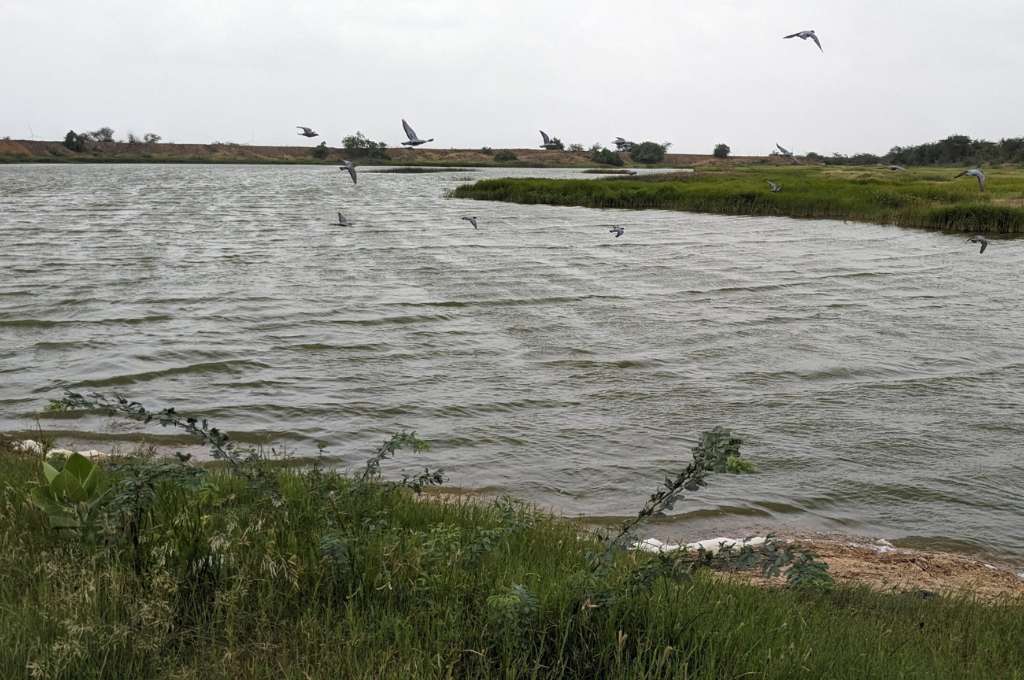
In the Rann of Kachchh, a very dry and saline region in Gujarat, water is a scarce commodity. This makes the village pond in Thoriyari, located in Kachchh district’s Rapar block, a precious community resource. Thoriyari is home to 330 households, and the pond serves many of their water-related needs such as drinking water for cattle and washing clothes. The pond also acts as a biodiversity hotspot—the Indian black Ibis is one of the many migratory birds that nests here every year.
To help preserve the pond and prevent pollution and misuse of water, no one is allowed to wash their clothes near it. The pond also requires annual maintenance. In Rapar, there is a tradition of performing shramdaan (voluntary labour) to clean the pond; the entire village gathers for weeding, clearing shrubs, levelling or raising banks, thorn fencing, and maintaining the waste weir (overflow protection) area. This takes place on every Aashad Ekadashi—the eleventh day of the fourth month in the Vedic calendar—and is known as Bhimagyaras. However, both Bhimagyaras and the community ponds have disappeared in the last two decades, and the one in Thoriyari is among the last few ponds left.
“Bhimagyaras is a very important event in the village’s community calendar, since people bury their differences and come together to clean the pond on this day,” says Navghan, a resident of the village.
While there are many factors contributing to these ponds disappearing—such as migration to cities in search of better opportunities, growing individualism, climate change, and the diminishing relevance of village ponds due to the water accessed from the Narmada river—locals in the neighbouring villages say that there is another reason why people don’t want to participate in Bhimagyaras: NREGA. “With the coming of NREGA, people expect to be paid for whatever work they do. That is why you’ll find these ponds in only two villages in all of Rapar, and these are ponds where there is little or no NREGA work,” says Praveen, a resident of Bela village, 91 kilometres away from Thoriyari.
Vikram Kandukuri is a 2024 India Fellow, a content partner for #groundupstories on IDR. Read the original story here.
—
Know more: Learn why the tradition of notra is disappearing among Rajasthan’s Bhil community.
Do more: Connect with the author at avruro@duck.com to learn more about and support his work.